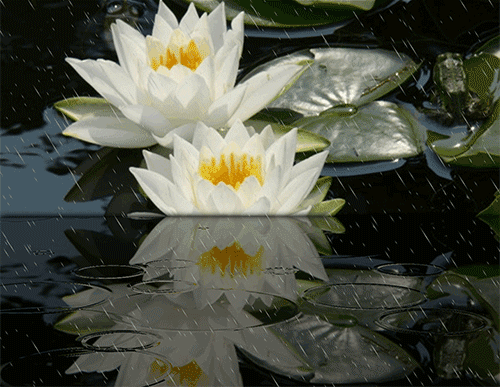
by Tenzin Gyatso, The Fourteenth Dalai Lama
I must emphasize again that merely thinking that compassion and reason and patience are good will not be enough to develop them. We must wait for difficulties to arise and then attempt to practice them.
And who creates such opportunities? Not our friends, of course, but our enemies. They are the ones who give us the most trouble, So if we truly wish to learn, we should consider enemies to be our best teacher!
For a person who cherishes compassion and love, the practice of tolerance is essential, and for that, an enemy is indispensable. So we should feel grateful to our enemies, for it is they who can best help us develop a tranquil mind! Also, itis often the case in both personal and public life, that with a change in circumstances, enemies become friends.
So anger and hatred are always harmful, and unless we train our minds and work to reduce their negative force, they will continue to disturb us and disrupt our attempts to develop a calm mind. Anger and hatred are our real enemies. These are the forces we most need to confront and defeat, not the temporary enemies who appear intermittently throughout life.
Of course, it is natural and right that we all want friends. I often joke that if you really want to be selfish, you should be very altruistic! You should take good care of others, be concerned for their welfare, help them, serve them, make more friends, make more smiles, The result? When you yourself need help, you find plenty of helpers! If, on the other hand, you neglect the happiness of others, in the long term you will be the loser. And is friendship produced through quarrels and anger, jealousy and intense competitiveness? I do not think so. Only affection brings us genuine close friends.

In today’s materialistic society, if you have money and power, you seem to have many friends. But they are not friends of yours; they are the friends of your money and power. When you lose your wealth and influence, you will find it very difficult to track these people down.
The trouble is that when things in the world go well for us, we become confident that we can manage by ourselves and feel we do not need friends, but as our status and health decline, we quickly realize how wrong we were. That is the moment when we learn who is really helpful and who is completely useless. So to prepare for that moment, to make genuine friends who will help us when the need arises, we ourselves must cultivate altruism!
Though sometimes people laugh when I say it, I myself always want more friends. I love smiles. Because of this I have the problem of knowing how to make more friends and how to get more smiles, in particular, genuine smiles. For there are many kinds of smile, such as sarcastic, artificial or diplomatic smiles. Many smiles produce no feeling of satisfaction, and sometimes they can even create suspicion or fear, can’t they? But a genuine smile really gives us a feeling of freshness and is, I believe, unique to human beings. If these are the smiles we want, then we ourselves must create the reasons for them to appear.
Compassion and the world
In conclusion, I would like briefly to expand my thoughts beyond the topic of this short piece and make a wider point: individual happiness can contribute in a profound and effective way to the overall improvement of our entire human community.
Because we all share an identical need for love, it is possible to feel that anybody we meet, in whatever circumstances, is a brother or sister. No matter how new the face or how different the dress and behavior, there is no significant division between us and other people. It is foolish to dwell on external differences, because our basic natures are the same.
Ultimately, humanity is one and this small planet is our only home, If we are to protect this home of ours, each of us needs to experience a vivid sense of universal altruism. It is only this feeling that can remove the self-centered motives that cause people to deceive and misuse one another.
If you have a sincere and open heart, you naturally feel self- worth and confidence, and there is no need to be fearful of others.
I believe that at every level of society – familial, tribal, national and international – the key to a happier and more successful world is the growth of compassion. We do not need to become religious, nor do we need to believe in an ideology. All that is necessary is for each of us to develop our good human qualities.
I try to treat whoever I meet as an old friend. This gives me a genuine feeling of happiness. It is the practice of compassion.
Link source

















